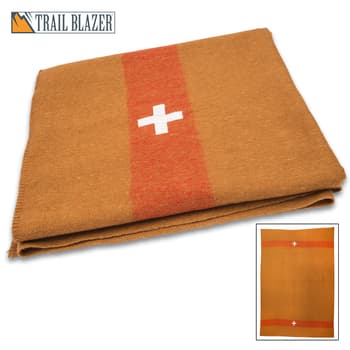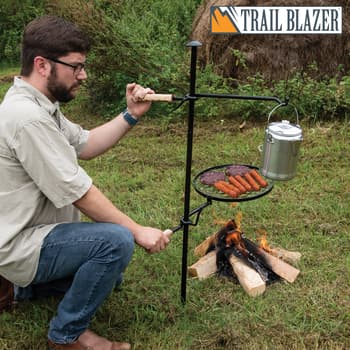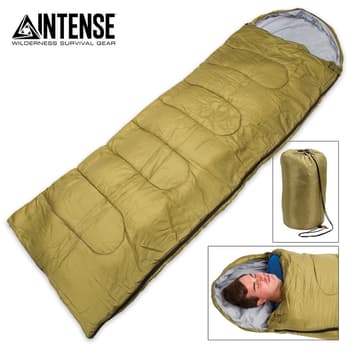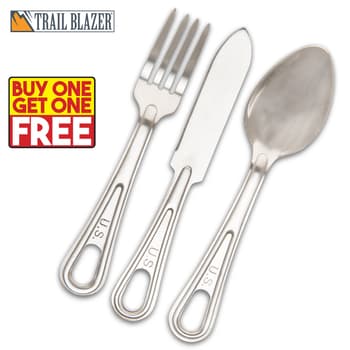Camping Tips For Beginners

By Adelia Ladson
You’re feeling the call to get out into nature. So, you’re thinking of going camping. Where do you start if you’ve never done it before? If you've never been camping before or not very often, there are some tips that you should know that will make it easier and more enjoyable.
Types of Camping
Well, the first decision that you need to make is what type of camping are you up for? Believe it or not, you have a few options.
- Tent camping is the most common and simple form of camping, especially, suitable for families and can provide great family memories. Basically, you look for a place to camp whether a state park or a commercial campground. Usually, you rent a campsite to pitch your tent and build your campfire, unless a fire-ring is provided and that makes it even simpler.
- Backpacking is a great way to explore an area like a national wilderness area or a trail. This type of camping is where you are hiking with all of your camping gear on your back and stop to camp along the way. Depending on your chosen hiking route, you could spend a week to a month. When you’re just starting out, you could just be hiking into one campsite location, staying overnight and then hiking back out.
- Canoe camping is a lot like backpacking except for all of the walking. Instead, you’ll be trekking on a river and stopping to camp along the way. Canoe camping offers a view of nature from a different vantage point and the option of fresh fish cooked over a campfire.
- RV camping allows you to travel from campground to campground so that you can see several areas during your trip. Many people enjoy traveling from coast to coast or through several states to see different parks and sites and the mobility of an RV lets them do just that.
What You Need
There are basic necessities that you must have when you’re camping and, then, there are the items that you want to bring but don’t actually need. When planning a weekend camping trip, make two lists – necessity and luxury. Then check it three times before you actually pack your gear. Here are some things that you shouldn't forget.
- If you're choose to backpack into a camping site, experts say that a person should be able to carry about 25% of their weight, in a backpack, comfortably while hiking.
- Having a tarp in your gear is important just in case it rains because it will provide that extra cover over your tent.
- Having a way to make fire when you’re camping is a necessity so never leave anything to chance. Bring a lighter because it's easier but also bring some kind of flint or ferrocerium based firestarter in case your lighter doesn't work.
- Also, when you’re building a campfire, your life will be so much easier if you have a starting tinder that you can completely count on to light. The Never Fail Fire Starters will ignite even after being submerged in water!
- You need a good set of camp cooking gear. One of the best sets on the market is the Kelly Kettle Large Kit.
- Today’s ready-to-eat meals have come a very long way from the military-issue MRE’s and ReadyWise Food has some of the most delicious and nutritious entrées out there.
- There are tasks that must be accomplished to set-up camp. To do this quickly and effectively, you need the right tools and the two most important are a camp axe for cutting firewood and a survival shovel for digging a rain trench around your tent.
- The way to weather the colder temperatures when camping during the fall or early winter is through insulation and layering. In your tent, as the cold ground will be the biggest heat sucker, you need to insulate yourself as much as possible from it. When it comes to what you wear, layering is the only way to keep warm.
- A weather radio is an essential camping tool that receives up-to-the-minute information on the weather conditions in the area that you're camping in. Weather can change quickly, and you need to know what's coming.
- The one thing that you absolutely cannot forget to pack in your camping gear is a good First Aid Kit. Accidents happen all the time when you're camping. There are several out there that you can buy from family size to individual size kits.
Set-Up Tips
There are some things that you need to do when you first set-up your campsite. When you get there, locate your water supply and the trash receptacles. Also, make sure to review all campsite and park rules and regulations. If you're family camping, assign everyone a task to make set-up quicker and efficient. Most parks that you camp at, unless you're really primitive camping, will have a source of clean water for you to access and you should dispose all of your daily trash before you go to bed each night. First thing is to set-up your tent, which will be easier if you already practiced setting it up at home. Find a flat spot to pitch your tent on, looking where there's dirt or matted down grass, which is a sign that tents have been pitched there before. Put down a groundsheet, even if your tent does have a built-in ground sheet to help insulate you from the ground and protect your tent bottom from punctures. Once you set-up your tent, dig a rain trench around it for just in case. Set-up your camp kitchen at least 100 yards from your tent, if possible. This means, if there's a fire-pit and picnic table at your campsite, try to put as much distance as possible between them and your tent. Most parks are going to have food storage lockers so use them so that animals won't get into your food supplies. Never store food inside your tent. If you're using a camp stove instead of a fire pit, then store that in the locker, too. Also, make sure that the food locker is a distance away from your tent.



